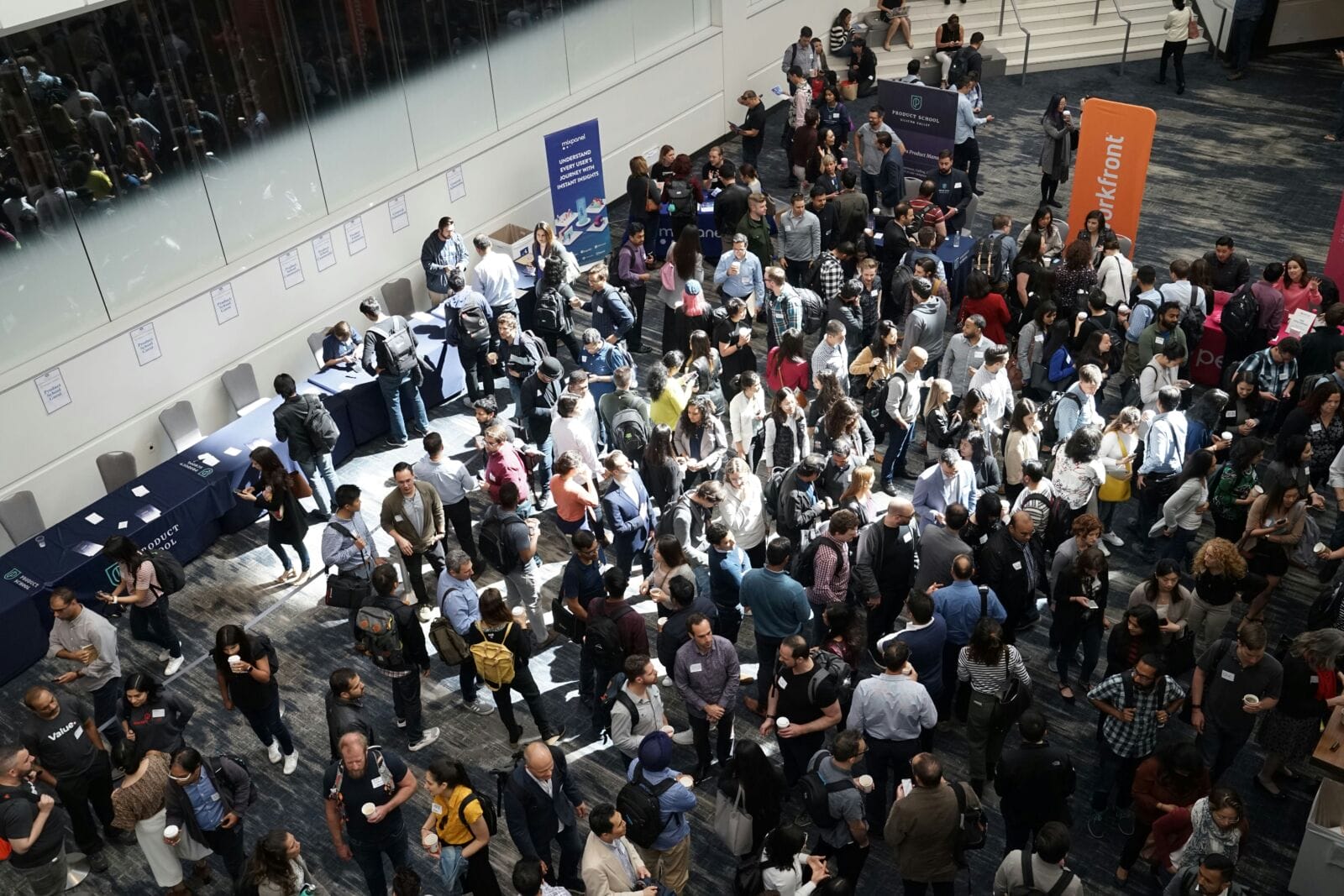Some of the most exciting conferences in a variety of fields are held in Canada, drawing professionals, scholars, and students from all over the world. Whether it’s for learning, networking, or career growth, attending an event here can be an invaluable experience. If you’re planning to be part of one, you might be wondering how to attend a conference in Canada.
Attend a Canadian conference by selecting the right event, securing a visa, and registering early. Arrange travel, book accommodation, and plan your schedule. Bring necessary documents, network actively, and follow up after the event to maximize opportunities.
If you’re curious about what to do at each step, this article has everything you need. From registration to making the most of your time at the event, every essential detail is covered. Keep reading to ensure a hassle-free and rewarding conference experience.
How to Attend a Conference in Canada? Simple Steps to Follow
A carefully considered plan is required to guarantee a smooth and satisfying conference experience in Canada. Whether you’re participating for learning, networking, or career growth, following a step-by-step guide ensures you get the most out of it. Here’s everything you need to know to attend successfully.
Step 1: Find the Right Conference
Start by searching for conferences that match your field of interest. Consider the topics, speaker lineup, and expected audience before making a decision. Researching past editions can help you determine their value. Also, make sure the dates fit your availability. Once you shortlist your options, choosing the right one becomes easier.
Step 2: Check Visa and Travel Requirements
If you’re traveling from another country, check visa policies as early as possible. Some conferences provide invitation letters that can support your visa application. Also, look into the latest travel guidelines and entry requirements. Booking flights early often helps in getting better deals. Having all your travel documents ready prevents last-minute stress.
Step 3: Complete the Registration
Registering on time is important, as many events offer early-bird discounts. Some conferences provide different ticket categories, including student rates or group discounts. Read the details carefully to know what’s included in the package. Always check refund and cancellation policies before making the payment. A timely registration secures your spot and helps you avoid unnecessary costs.
Step 4: Arrange Your Stay
Finding accommodation near the venue can save you time and make commuting easier. Many events have partnerships with hotels that offer discounted rates, so explore those options. If you’re attending with a group, consider shared accommodations to cut costs. Reading online reviews can help you pick a comfortable place. Booking early ensures you get the best choices without last-minute hassles.
Step 5: Plan Your Conference Schedule
Once you’ve secured your spot, go through the event schedule and highlight sessions you don’t want to miss. If you’re attending a conference in Canada, remember, that they offer multiple sessions running at the same time, so it’s good to plan in advance. Prioritizing key speakers and workshops can help you make the most of your time. If networking is a goal, leave room for informal meetups. A well-organized schedule ensures you don’t miss important opportunities.
Step 6: Gather Essential Documents
Make sure you have a copy of your registration confirmation, along with a valid ID. Some conferences may require additional documents, such as a student ID or business card for networking. Keeping digital backups of important files is also a smart move. If you’re presenting, ensure your materials are prepared in advance. Being organized helps avoid last-minute delays at the venue.
Step 7: Network and Participate
Engaging with other attendees is one of the biggest benefits of a conference. Introduce yourself, join discussions, and ask thoughtful questions during sessions. Many conferences have networking lounges or dedicated meet-and-greet areas. Even casual conversations can lead to valuable connections. The more you participate, the more you gain from the event.
Step 8: Explore the Local Area
You should take advantage of the opportunity to visit the city or nearby attractions if you have the time. Many conference venues are located in prime areas, making it easy to explore the city or try local foods. Just a short walk after sessions can be very refreshing. As long as you balance learning with a little bit of sightseeing, you’ll have a better experience.
Step 9: Follow Up After the Event
After the conference, take time to connect with the people you met. A quick follow-up email or LinkedIn message can help maintain relationships. If you collected materials or took notes, reviewing them while fresh helps retain valuable insights. Some events offer post-conference resources, so check if those are available. Keeping in touch extends the benefits of the event beyond the final day.
A well-prepared approach makes attending a conference much smoother. From picking the right sessions to making connections, every step contributes to a rewarding experience. Planning ahead ensures you make the most of your time and enjoy a hassle-free event.
What Factors Help in Selecting the Best Canadian Conference?
Participating in Canadian conferences can be a great way to connect with professionals, learn from industry leaders, and gain valuable insights. But with so many options available, picking the right one can feel overwhelming. A well-chosen event can make a big difference in how much you gain from it. Let’s break down the key factors that help in selecting the best Canadian conference.
Event Relevance
A conference should match your interests, academic field, or career goals. Checking the agenda, speakers, and discussion topics can help determine if it’s worth your time. Some events focus on general industry trends, while others dive deep into specific areas. Reading past attendee reviews can also give a better idea of what to expect.
Location & Accessibility
The city and venue play a big role in your overall experience. Choosing a location that is easy to reach, has good transport options, and offers budget-friendly stays can make your trip smoother. Some events are held in major cities, while others take place in smaller towns with fewer facilities. It’s always a good idea to check accommodation availability and transportation options before making a decision.
Speaker Lineup
A strong list of speakers can make an event more valuable. Well-known industry experts, researchers, or successful entrepreneurs often bring insights that you won’t find in books or online. Some conferences also feature interactive Q&A sessions or panel discussions that allow for direct engagement. Looking at previous speaker lineups can help predict the quality of upcoming sessions.
Networking Opportunities
Connecting with the right people can sometimes be just as important as attending sessions. Conferences that offer networking events, workshops, or breakout sessions can give you more chances to meet professionals in your field. Some even have mentorship programs or one-on-one meeting opportunities. Checking if the event encourages networking can help you maximize its benefits.
Cost & Value
Not all conferences are priced the same, so it’s important to check whether the registration fee fits your budget. Some events offer early-bird discounts, student rates, or group pricing, which can help cut costs. It’s also good to check if the fee covers extras like meals, materials, or access to recorded sessions. Comparing what different conferences offer for the price can help you make a smart choice.
Picking the right conference takes some research, but it’s worth the effort. A well-planned event can open doors to new learning, connections, and professional growth. Paying attention to key details will help you get the most out of your experience.
What Should You Check Before Making a Registration Payment for Canadian Conferences?
Although going to a conference in Canada is an exciting experience, rushing through the registration process may result in unforeseen problems. From ticket types to refund policies, checking the right details beforehand can save both time and money. A little research ensures you don’t run into surprises later. Let’s go over what you should always check before making a registration payment.

Ticket Inclusions
Every ticket type offers different benefits, so it’s important to know what you’re paying for. Some passes only grant access to general sessions, while others include workshops, networking events, or even post-event recordings. Reading the ticket details carefully helps avoid extra costs later. If meals or accommodations are included, that’s an added bonus to consider.
Cancellation & Refund Policies
Unexpected situations can come up, and not all conferences offer refunds. Some events provide partial refunds if canceled within a certain period, while others may only allow ticket transfers. Checking these policies beforehand ensures you know your options in case plans change. If there’s an option for event insurance, it might be worth considering for extra security.
Early-Bird & Group Discounts
There are many conferences that offer lower prices to those who register early. If you do not register on time, you may have to pay a much higher fee. Some events also offer discounts for students, groups, or organizations. If you take advantage of these deals, you will be able to save money and make it easier for you to attend the event.
Payment Methods & Fees
Not all events accept every payment method, so checking available options is important. Some platforms may add extra processing fees depending on the payment method used. If paying through a credit card, looking at foreign transaction fees can help avoid extra charges. It’s always good to double-check the final price before confirming payment.
Confirmation & Receipt
After making a payment, a confirmation email or receipt should arrive shortly. This document serves as proof of registration and may be required at the event. Some conferences provide QR codes or digital tickets, so keeping them easily accessible is a good idea. If an email doesn’t arrive, reaching out to event support can prevent last-minute check-in issues.
Paying attention to these details ensures a smooth registration process without unwanted surprises. A little extra effort before making the payment can save money, prevent complications, and make your conference experience stress-free.
How to Stay Connected With People You Met at the Conference in Canada?
Meeting new people at a conference in Canada is just the first step; staying in touch is what really makes those connections valuable. Whether it’s industry experts, potential collaborators, or fellow attendees, maintaining contact can lead to future opportunities. A thoughtful approach ensures those relationships don’t fade after the event. Here’s how you can stay connected effectively.
Exchange Contact Information Properly
A quick chat isn’t enough if you don’t have a way to reach out later. Before parting ways, sharing a business card, LinkedIn profile, or even social media handle makes follow-ups easier. Some conferences have networking apps that let you connect instantly. Keeping a digital note of important contacts can also help you remember key details about them.
Send a Follow-Up Message
After the event, a simple message keeps the conversation going. Whether it’s a quick email or a LinkedIn message, mentioning something specific in your discussion makes it more personal. Expressing appreciation for their time and sharing any relevant resources can also leave a good impression. The sooner you reach out, the better the chances of building a strong connection.
Engage With Their Content
Liking, commenting, or sharing posts from people you meet keeps you on their radar. Many professionals share insights, updates, or projects on LinkedIn and other platforms. Engaging with their content naturally strengthens the connection without forcing communication. This approach helps maintain contact even when there’s no immediate reason to message them.
Attend Future Events Together
Staying in touch is easier when you have common interests. If you plan to attend another conference, workshop, or seminar, inviting past connections can be a great way to reconnect. Some industry groups also hold online discussions or webinars where you can interact. Being part of shared activities keeps the relationship active without feeling forced.
Offer Help Before Asking for Favors
Building a strong connection isn’t just about what you can gain. Offering useful information, introductions, or assistance without expecting anything in return makes you more memorable. If they ever need support in your area of expertise, being helpful strengthens your professional relationship. People appreciate connections that feel genuine rather than transactional.
Staying connected after a conference doesn’t have to be complicated. A small effort can turn a short conversation into a lasting professional relationship. Whether online or in person, keeping in touch can open doors to new opportunities in the future.
Tips to Budget for Your Conference Trip to Canada
It is an exciting opportunity to attend a conference in Canada, but if you are not prepared, the expenses can mount up quickly. From flights to accommodation, every little expense matters when planning your budget. A few smart choices can help you manage costs without stress. Here are some tips to keep your spending in check.
- Book Flights Early: Airfare prices tend to rise the closer you get to the travel date. Securing tickets a few months in advance often results in better deals and lower prices.
- Look for Budget-Friendly Accommodation: Staying at hotels near the venue can be expensive, so checking hostels, Airbnb, or shared stays can help save money without sacrificing comfort.
- Use Public Transportation: Taxis and rental cars can quickly drain your budget, so exploring bus, metro, or ride-sharing options is a cheaper and more practical choice.
- Take Advantage of Conference Discounts: Some events partner with hotels and travel services to offer special rates. Checking if the conference has any deals can lead to great savings.
- Plan Meals Smartly: Eating out for every meal adds up fast, so finding places with affordable options or choosing accommodations with kitchen access can help cut food costs.
- Set a Daily Budget: Small expenses like snacks, coffee, and souvenirs can add up. Keeping track of spending each day helps avoid unnecessary purchases and keeps your budget on track.
- Check for Student or Group Discounts: Many conferences offer lower rates for students or group registrations. Looking into these options can help reduce costs while still getting the full experience.
Budgeting doesn’t mean cutting out all the fun; it just means making smart choices. A little planning ensures you can enjoy the conference without worrying about money. Taking control of your expenses makes the whole trip stress-free and more enjoyable.
Final Word
Taking part in a conference in Canada is more than just an event; it’s an opportunity to learn, connect, and grow professionally. From selecting the right conference to making the most of networking sessions, every step plays a role in ensuring a productive experience. A well-organized plan can turn your trip into a rewarding and hassle-free journey.
If you’re wondering how to attend a conference in Canada, the key steps include choosing a relevant event, securing travel documents, registering early, and planning accommodations. Preparing a solid schedule, engaging in discussions, and following up afterward help maximize the experience. A thoughtful approach makes attending a conference both enjoyable and beneficial.
Before you go, keep a few things in mind—book early to save money, stay open to new connections, and make time for both learning and fun. Every conference brings new possibilities, so make the most of it. Wishing you a great time at your next event!




